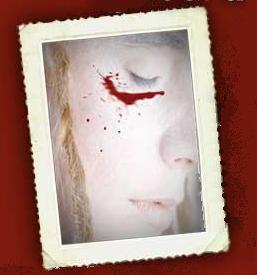Long in the Waiting, Longer Still in the Hearing: Cavalli's Didone Hits Washington
 Pier Francesco Cavalli’s La Didone got its North American premiere in Washington over the last three days, nestled away in American University’s pretty and functional Greenberg Theatre. Ionarts promised a little star for your book if you attended; we should offer another one for everyone who sat through the entire opera. If you did, you will have gotten your secco recitativo fill for the year, La Didone’s three-plus hours (after Ignoti Dei Opera’s artistic director Timothy Nelson had mercifully cut some 45 additional minutes) consisting of three-quarters recitative as it does. Baroque audiences were more different than alike us; and they would doubtlessly have experienced and enjoyed the entertainment and novelty that La Didone provides to its patient listeners in a different, perhaps more intense way. Baroque fanatics and musicologists alike must have been spellbound at the production, though: how long has it been since we saw and heard a little orchestra replete with cornettos, lirone, two (!) theorbos, viola da gamba, and the like?
Pier Francesco Cavalli’s La Didone got its North American premiere in Washington over the last three days, nestled away in American University’s pretty and functional Greenberg Theatre. Ionarts promised a little star for your book if you attended; we should offer another one for everyone who sat through the entire opera. If you did, you will have gotten your secco recitativo fill for the year, La Didone’s three-plus hours (after Ignoti Dei Opera’s artistic director Timothy Nelson had mercifully cut some 45 additional minutes) consisting of three-quarters recitative as it does. Baroque audiences were more different than alike us; and they would doubtlessly have experienced and enjoyed the entertainment and novelty that La Didone provides to its patient listeners in a different, perhaps more intense way. Baroque fanatics and musicologists alike must have been spellbound at the production, though: how long has it been since we saw and heard a little orchestra replete with cornettos, lirone, two (!) theorbos, viola da gamba, and the like?
The story is the popular myth of Aeneas (Enea), son of Venus and Anchises, the fall of Troy, his flight, the consequent stopover in Carthage, and the eventual founding of Rome. (Berlioz treats the exact same story in Les Troyens, which, at 5½ hours, feels nearly as long as La Didone.) Aeneas’s story is littered with various women, including Dido (the Didone of the opera’s title), Queen of Carthage, who falls in love (Amor’s intervention helps) with him after he left most of his female family members dead and/or raped in the rubble of Troy. Add insane African kings, assorted gods, children, and old fathers to taste and you are good to go. Librettist Giovan Francesco Busenello does the inevitable (even 300 years before Hollywood), he gives the story a happy end in that Dido does not (successfully) commit suicide.
Joe Banno, 'La Didone': A Long, Slow Night at the Opera (Washington Post, June 19) Charles T. Downey, Going for Baroque in Washington (DCist, June 19) Tim Smith, U.S. premieres uncover roots of opera's past (Baltimore Sun, June 20) |
The orchestra performed beautifully throughout, although one felt for Anna Marsh, the Tambourine-Lady, who got to clap her instrument six, seven times every half-hour, and could have knitted a sweater or two in the time between. On harpsichord and organ, Mr. Pearl led the troupe with seasoned skill that belies his relative youth. The singing, meanwhile, was a different story. To make mention of the proverbial “mixed bag” would be an understatement. There were basically three groups into which they fell: the admirably courageous, the admirably performing, and Rosa Lamoreaux.
 F.Cavalli, La Didone, T.Hengelbrock et al. DHM     |
With a more even cast and an opera that is more interesting to the music lover’s ear than to the scholar’s research (how I would love to hear a Lully work or Vivaldi’s La verità in cimento) Ignoti Dei Opera might even better fill that gaping Baroque opera void in Washington, and one wishes them all the experience, luck, and donations they need to continue to grow into their ambitious plans.

Follow @ClassicalCritic




















































